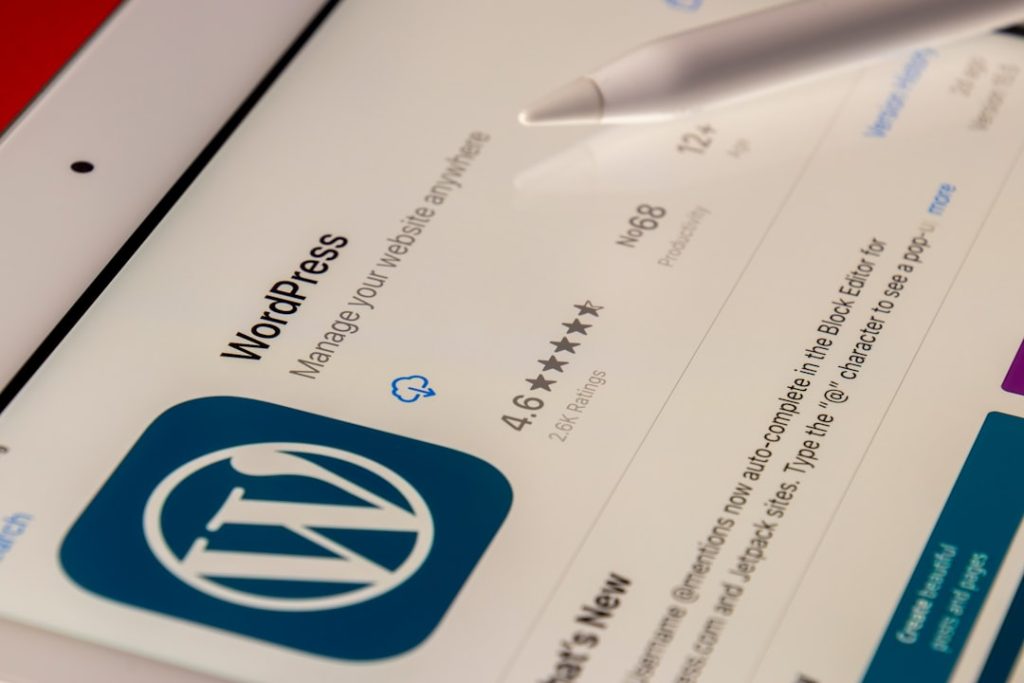WordPress vs. Wix: Which is Right for Your Small Business?
Choosing the right platform for your small business website can feel overwhelming. Two of the most popular options are WordPress and Wix. Both empower you to create a website, but they cater to different needs and skill levels. This guide will help you determine which platform is the best fit for your business.
What is WordPress?
WordPress is a powerful, open-source content management system (CMS). Think of it as the engine that drives your website. It requires a separate web hosting account and domain name, giving you complete control over your site.
What is Wix?
Wix is a website builder that offers an all-in-one solution. This means they provide the hosting, domain (though you can connect your own), and the website building tools all in one package. It’s known for its drag-and-drop interface, making it user-friendly for beginners.
Ease of Use: A Head-to-Head Comparison
Wix: The drag-and-drop interface is incredibly intuitive. You can visually design your website by simply dragging elements onto the page and arranging them as you like. Wix’s ease of use makes it a great option for those who want to get a website up and running quickly without needing to learn code.
WordPress: WordPress has a steeper learning curve. While the basic interface is straightforward, customizing your site often involves understanding themes, plugins, and sometimes even code. However, many user-friendly themes and page builders (like Elementor or Beaver Builder) can simplify the process.
Customization and Control: How Much Do You Need?
WordPress: This is where WordPress shines. With thousands of themes and plugins available, the possibilities for customization are virtually endless. You can create a highly unique and feature-rich website tailored to your specific business needs. You have full control over your website’s code, design, and functionality.
Wix: Wix offers a good level of customization through its app market and design options. However, it is more limited compared to WordPress. You’re generally restricted to the features and functionalities that Wix provides, and you don’t have direct access to the website’s code.
Cost: What’s Your Budget?
Wix: Wix offers various pricing plans, including a free plan (which displays Wix branding). Paid plans range in price depending on the features you need. Keep in mind that costs can add up if you require specific apps or features.
WordPress: WordPress itself is free. However, you’ll need to factor in the cost of web hosting, a domain name, and potentially premium themes and plugins. While the initial cost might be lower than Wix, the ongoing expenses can vary depending on your needs.
SEO (Search Engine Optimization): Getting Found Online
WordPress: WordPress is generally considered to be more SEO-friendly. Its flexible structure and the availability of powerful SEO plugins (like Yoast SEO and Rank Math) allow you to optimize your website effectively for search engines.
Wix: Wix has made significant improvements to its SEO capabilities in recent years. While it might not offer the same level of control as WordPress, it provides tools for optimizing your website’s content and structure for search engines.
Scalability: Can Your Website Grow With Your Business?
WordPress: WordPress is highly scalable. As your business grows, you can easily add more pages, features, and functionality to your website. Its flexible nature makes it suitable for businesses of all sizes, from small startups to large enterprises.
Wix: Wix can be suitable for smaller businesses with simpler needs. However, as your website grows in complexity, you might find its limitations restrictive. Migrating from Wix to another platform can also be challenging.
The Verdict: Which Platform is Right for You?
Choose Wix if:
- You need a simple website quickly and easily.
- You have limited technical skills.
- You don’t require extensive customization.
- You prefer an all-in-one solution.
Choose WordPress if:
- You need a highly customizable website.
- You want full control over your website’s code and functionality.
- You prioritize SEO.
- You plan to scale your website as your business grows.
Ultimately, the best platform depends on your individual needs and priorities. Consider your technical skills, budget, and long-term goals when making your decision.
Choosing the right platform is a big step, and now you’re equipped to take it! The possibilities for your business are endless with a strong online presence.
